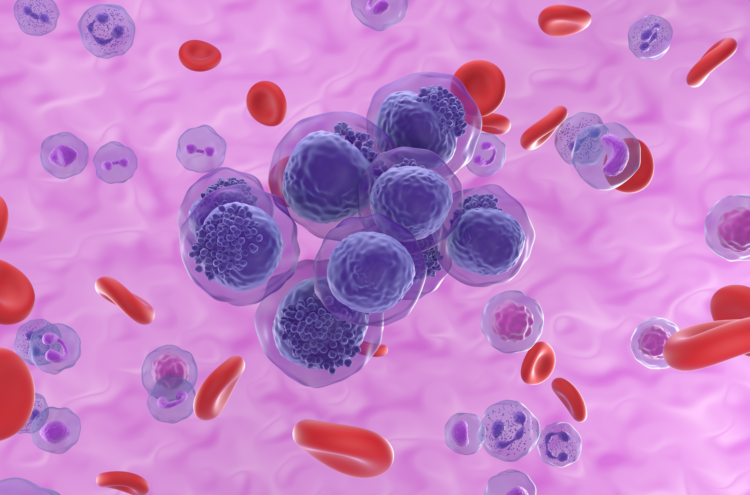FDA approves revumenib for R/R acute leukemia with KMT2A translocation
On November 15, 2024, the U.S. Food and Drug Administration (FDA) granted approval to the menin inhibitor revumenib for adult and pediatric patients (aged one year and older) with relapsed/refractory (R/R) acute leukemia harboring a lysine methyltransferase 2A (KMT2A) gene translocation.1
Rearrangements of the KMT2A gene are present in up to 10% of acute leukemias and are associated with chemotherapy resistance, high rates of relapse, and poor prognosis.2 Menin inhibitors have shown promise for treating acute leukemias by disrupting the interaction between KMT2A and menin, a key protein involved in KMT2A-mediated leukemogenesis.3
The approval of revumenib is supported by data from a single-arm cohort of the Phase I/II open-label, multicenter AUGMENT-101 trial (NCT04065399), which enrolled 104 adult and pediatric patients (≥30 days old) with R/R acute leukemia harboring a KMT2A translocation and with the absence of an 11q23 partial tandem duplication.4 Primary outcomes included rate of complete remission (CR) plus CR with partial hematologic recovery (CRh), along with duration of CR+CRh and conversion from transfusion dependence to independence.
Regarding safety, the most common adverse events (AEs; occurrence ≥20%) included hemorrhage, nausea, musculoskeletal pain, infection, febrile neutropenia, bacterial infection, diarrhea, differentiation syndrome, QTc prolongation, decreased appetite, constipation, viral infection, edema, fatigue, thrombosis, and leukocytosis.1 Serious AEs were reported in 99 (73%) patients, and AEs requiring dose reduction or permanent discontinuation occurred in 10% and 12% of patients, respectively. In 3% of patients, fatal AEs occurred (differentiation syndrome: n = 2; hemorrhage: n = 1; sudden death: n = 1).5
In an interview at the 65th ASH Annual Meeting and Exposition, Ibrahim Aldoss, MD, City of Hope, Duarte, CA, shared the findings of AUGMENT-101, highlighting that “Responses were durable and deep, and allowed many of these patients to proceed with allogeneic stem cell transplantation as a curative treatment.”
The approval of revumenib offers a novel, targeted therapy for patients with KMT2A-rearranged acute leukemia, providing new hope in this high-risk and difficult-to-treat population.
References
- U.S. Food and Drug Administration. FDA approves revumenib for relapsed or refractory acute leukemia with a KMT2A translocation. Available here. (Last accessed 18/11/2024).
- Guarnera L, D’Addona M, Bravo-Perez C, et al. KMT2A Rearrangements in Leukemias: Molecular Aspects and Therapeutic Perspectives. Int. J. Mol. Sci. 2024 Aug;25(16), 9023.
- Grembecka J, He S, Shi A, et al. Menin-MLL inhibitors reverse oncogenic activity of MLL fusion proteins in leukemia. Nat Chem Biol. 2012 Jan;8, 277–284.
- ClinicalTrials.gov. A Study of Revumenib in R/R Leukemias Including Those With an MLL/KMT2A Gene Rearrangement or NPM1 Mutation (AUGMENT-101). Available here. (Last accessed 18/11/2024).
- Syndax Pharmaceuticals. Syndax Announces FDA Approval of Revuforj® (revumenib), the First and Only Menin Inhibitor to Treat Adult and Pediatric Patients with Relapsed or Refractory Acute Leukemia with a KMT2A Translocation. Available here. (Last accessed 18/11/2024).
Written by Natalie Markova
Edited by Anya Dragojlovic Kerkache





